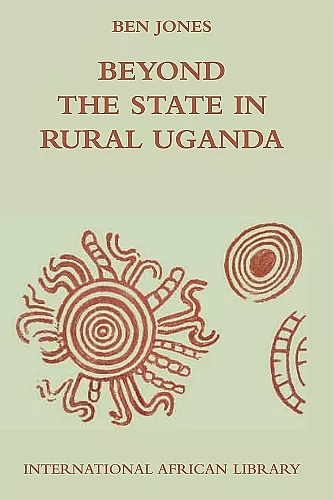Beyond the State in Rural Uganda
Format:Paperback
Publisher:Edinburgh University Press
Published:14th Jan '11
Currently unavailable, and unfortunately no date known when it will be back

In this innovative study, Ben Jones argues that scholars too often assume that the state is the most important force behind change in local political communities in Africa. Studies look to the state, and to the impact of government reforms, as ways of understanding processes of development and change. Using the example of Uganda, regarded as one of Africa's few "success stories", Jones chronicles the insignificance of the state and the marginal impact of Western development agencies. Extensive ethnographic fieldwork in a Ugandan village reveals that it is churches, the village court, and organizations based on family and kinships obligations that represent the most significant sites of innovation and social transformation. Groundbreaking and critical in turn, Beyond the State offers a new anthropological perspective on how to think about processes of social and political change in poorer parts of the world. It should appeal to anyone interested in African development. Key features: *Offers a new approach to studying development and change *Gives a fresh perspective on Christianity in Africa *Looks at problems of international development assistance *Provides a rich ethnographic rural study from east Africa
A very readable book and one that challenges current development discourses with good ethnography and historical scholarship. It is a book that will be particularly useful for teaching in undergraduate courses and in postgraduate seminars! And it is essential reading for students of Uganda, and indeed for students of Africa. -- Michael Whyte African Studies Review A fascinating and convincing book! Yoweri Museveni, so the story goes, has made the hard decisions that would usher in economic, social, and political development, and for that he is feted in Western capitals and is showered with millions in aid. Instead, Jones examines Oledai sub-parish in the Iteso region of eastern Uganda, where the state and NGOs appear more or less irrelevant to daily life, and the achievements for which Museveni is hailed are nowhere to be seen. -- Brett L. Shadle Journal of African History Offers a new anthropological perspective on how to think about processes of social and political change in poorer parts of the world, appealing to anyone interested in African development. Society Now An attractive option for classroom use. ... Advanced undergraduate students in anthropology, history, and development studies would find much to value in this text. Graduate students and specialists will also appreciate Jones' ability to integrate sophisticated theoretical arguments into a compelling ethnohistorical analysis. -- Alicia Decker International Journal of African Historical Studies I consider the book to be a welcome addition to the recent ethnographic literature on East Africa. -- Jan de Wolf Social Anthropology An accessible, intelligent, and stimulating account, and a very welcome addition to a literature on Uganda which frequently does limit itself, as Jones himself argues, to rather reactionary and conventional accounts of developmental 'transformation'. -- Tania Kaiser Journal of the Royal Anthropological Institute A very readable book and one that challenges current development discourses with good ethnography and historical scholarship. It is a book that will be particularly useful for teaching in undergraduate courses and in postgraduate seminars! And it is essential reading for students of Uganda, and indeed for students of Africa. A fascinating and convincing book! Yoweri Museveni, so the story goes, has made the hard decisions that would usher in economic, social, and political development, and for that he is feted in Western capitals and is showered with millions in aid. Instead, Jones examines Oledai sub-parish in the Iteso region of eastern Uganda, where the state and NGOs appear more or less irrelevant to daily life, and the achievements for which Museveni is hailed are nowhere to be seen. Offers a new anthropological perspective on how to think about processes of social and political change in poorer parts of the world, appealing to anyone interested in African development. An attractive option for classroom use. ... Advanced undergraduate students in anthropology, history, and development studies would find much to value in this text. Graduate students and specialists will also appreciate Jones' ability to integrate sophisticated theoretical arguments into a compelling ethnohistorical analysis. I consider the book to be a welcome addition to the recent ethnographic literature on East Africa. An accessible, intelligent, and stimulating account, and a very welcome addition to a literature on Uganda which frequently does limit itself, as Jones himself argues, to rather reactionary and conventional accounts of developmental 'transformation'.
ISBN: 9780748635191
Dimensions: unknown
Weight: unknown
224 pages